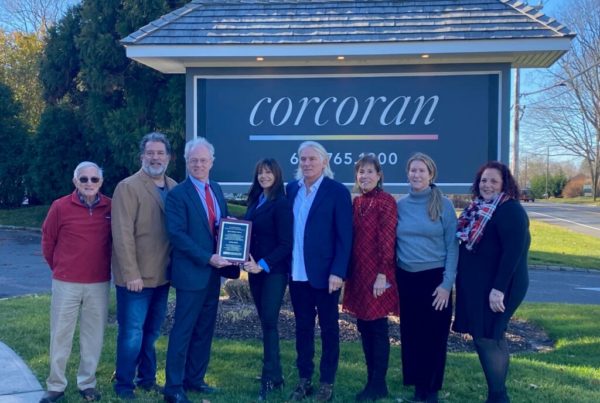North Fork Real Estate Recommended Reading: These Houses Are Built With Blocks Made From Waste Plastic
On the North Fork, there are so many amazing homes. We also have a beautiful balance of sprawling landscapes. In the interest of keeping both preserved, let’s look at some earth-friendly building options. These blocks might not be the right building choice for your new home right now, but I can imagine the future of recycling building materials with this product serving as the basis for the future.
Oscar and his colleagues Henry Cañon and Isabel Cristina started out with an aim of reducing the environmental impact of plastic by reusing it in construction. Once they were joined by Fernando Llanos (and later, Jesus Mendez) Conceptos Plásticos was born, and they’ve gone from strength to strength since. The company aims to tackle two problems: one, the growing mountain of plastic in landfills; and two, booming populations in cities across Latin America. To be honest, it’s tough to say which could have the most serious implications for the environment. A recent report from TECHO showed that a staggering 80% of Latin America’s population now live in cities. And a report launched at the World Economic Forum in January said that around 309 million tons of plastic was manufactured in 2014. Neither of these is the sole concern of one country though; as Oscar told me himself, “Plastic is a problem everywhere, and people will always need a roof over their head.” So how do they turn a waste product into a construction material?

Plastic trash could offer a sustainable construction material for the houses of the future (Image credit: SEYLLOU/AFP/Getty Images)
Well, firstly they work closely with those who will benefit from the housing – visiting schools and community groups to encourage them to collect various waste plastics and old tires. The materials are thoroughly cleaned, before being ground into a rough power, mixed, melted and extruded into a range of shapes – mostly beams, blocks and pillars – which lock together to form buildings. Importantly, the company also trains communities in how to build these structures, giving them ownership over their homes and providing skills they can take elsewhere. Oscar’s plastic homes can be assembled remarkably quickly – a 40 m2house divided into two bedrooms, a bathroom, living room, dining room and kitchen, and can be built by four people in just five days. The cost is considerably lower than traditional systems used in rural areas too – their standard house mentioned above can be built for $5,200.

When we spoke, Oscar was in New York, taking part in the final of The Venture – a competition that aims to fund “innovative business that (create) positive change in the world.” Of the $1 million available to finalists, Oscar’s company Conceptos Plásticos was granted a remarkable $300,000. Winning it meant a great deal to the team. “It’s confirmed that our project really does have the incredible potential that we always believed it had.” Not only will it allow Conceptos Plásticos to improve all of their processes and increase their capacity, but it will help them to look much further afield. Oscar told me, “We hope to create a movement where more and more people get involved. We want to develop new products that make better use of the thousands and thousands of tons of plastic that is discarded. There will soon be more plastic in the sea than fish, so we really need to do something big.”









